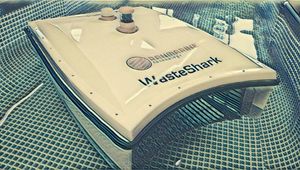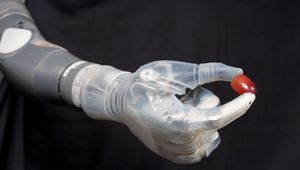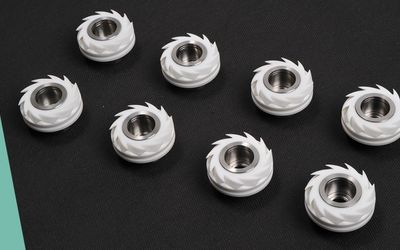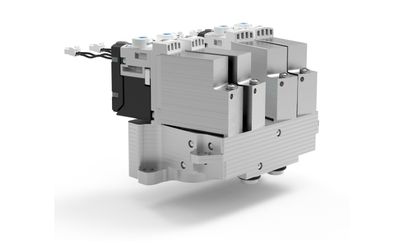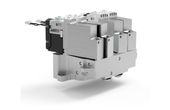Arduino Uno Rev 4 Boards
A comprehensive development board series with improved capacity yet familiar form factor of UNO R3 boards.
Technical Specifications
| Product Type | Multiprotocol Development Boards |
| Applications | Smart homes, lighting, automation, DIY electronics, Robotics, Control systems, Agriculture |
| Interface | UART, SPI, USB 2.0, Wi-FI, Bluetooth, CAN, and I2C |
| Operating Voltage | 3.3V and 5V |
| Frequency | 48 MHz and 2.4GHz |
Overview
The boards provide enhanced functionality, processing power, and memory capacity compared to Arduino R3 boards but preserve the shield compatibility and form factor. The R4 Minima is cost-effective, while the R4 Wi-Fi board features the Espressif S3- Wi-Fi module. It, therefore, allows developers to design and test a wide range of applications involving Wi-Fi connectivity.
Versatile Boards Tailored for Powerful Processing of Advanced Applications
The Arduino UNO R4 boards are available in two options:
UNO R-4 Wi-Fi
UNO R4 Minima
Both boards feature the Renesas R4M1 32-bit Arm Cortex-M4 Processor, which boosts the overall board functionality, allowing developers to take on more advanced applications in various projects.
The UNO R4 WiFi board also allows developers to integrate LCD controllers and capacitive touch displays for intuitive programming and to enhance the human-machine interface. It further accelerates performance due to low-power processing technology supported by an open, Flexible Software Package. The processor board makes it more viable for display-related applications involving LCDs and capacitive touch channels.
The board operates at 48 MHz and 2.4GHz with multiple interface options, including Bluetooth, CAN, USB 2.0, SPI, UART, I2C, and Wi-Fi. The Espressif S3-Wi-Fi module enables developers to integrate IoT-based devices and microcontrollers. It uses the Bluetooth 5.0 protocol and 802.11 Wi-Fi protocol for enhanced communication, essentially making it a viable option for IoT and other wireless communication projects.
The Arduino UNO R4 Minima is an extended version of the UNO board for developers who want basic microcontroller functionalities without additional capabilities. It’s designed for cost-effective Arduino development for DIY learners, students, and hobbyists.
Retained Form Factor for Smooth Integration and Compatibility with Existing UNO Boards
UNO R4 Wi-Fi and UNO R4 Minima have retained the UNO R3 form factor. Therefore, it retains the operating voltages (5V) and pinouts, which allows developers to seamlessly integrate their existing projects with the updated version of the microcontrollers. The retained form factor means the Arduino boards can integrate with existing UNO shields, which include:
Proto Shield Rev 3
Motor Shield Rev 3
9 Axis Motion Shield
Education Shield
Ethernet Shield
4 Relays Shield
It makes integrating the boards into existing Arduino UNO ecosystems easier without additional libraries or hardware modules to ensure compatibility. The boards are also compatible with most of the existing libraries for Arduino boards. Additionally, the processor can help solve more complex calculations and perform sophisticated tasks in various applications.
Thanks to powerful processing capabilities and seamless integration, the Arduino UNO Rev 4 boards are ideal for a wide range of applications such as Robotics, Eco-monitoring, Sensor Integrations, IoT, Automation systems, Home Automation, Education and Learning, DIY electronics, Agriculture, and many others.
Where to find it

Mouser Electronics
Mouser Electronics is a worldwide leading authorized distributor of semiconductors and electronic components.
References
Continue Reading
The client, one of the world's leading manufacturer of automation machines, found RPWORLD to provide qualified prototypes and low volume solutions for monthly order of 40 units. They had a new tooling machine under R&D stage, a key component, the impeller assembly failed, which caused delay of the whole product development process.So the client contacted RPWORLD to address the delay problem.
Online manufacturer supplies machined parts for prototypes resulting in significant time and cost savings
Festo relies on parts from Online Manufacturer FACTUREE to develop functional prototypes
Red Teaming Vs Pen Testing: Understanding the Distinctive Nature and Purpose of Cybersecurity Tactics
Discover the differences between red teaming and pen testing to ensure your organization is taking advantage of both approaches for optimal cyber security.
